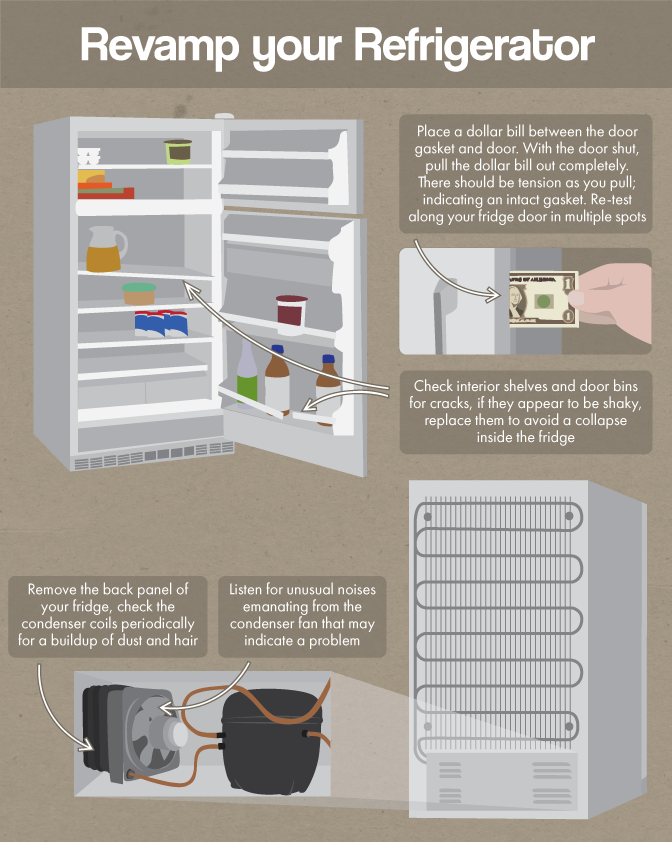The refrigerator is the Energizer Bunny of appliances – it never stops working. It would be an inconvenience to have your washer or dryer malfunction and interrupt your weekly wash cycle, but the refrigerator has much higher stakes. Keeping your fridge in good working order is crucial to avoid a breakdown that could cost you all of your chilled food. Avoid having a “going out of business” feast by following these regular fridge maintenance tips.
Maintain your refrigerator’s gaskets. The vinyl strip that forms a seal between the cabinet and the doors will keep the appliance running efficiently and help extend its life. Damaged door gaskets can allow room-temperature air to enter the refrigerator cabinet and create excess moisture and frost issues that could prevent your refrigerator from cooling properly. Any tearing or loosening means you have to replace your door gasket, and this can be one of the most tricky appliance parts to swap out. You can extend the life of your gaskets by applying a vinyl conditioner or a thin film of petroleum jelly to help them stay pliable and to form a better seal. (Also, wipe up any spills before they stick to the gaskets and you won’t have to replace them.)
Proper airflow through the condenser is essential for the efficient and long-lasting performance of your refrigerator. Household dust and pet hair that accumulate on condenser coils or condenser fans can restrict airflow, which could result in overheating and failure of the compressor or associated sealed system components. These repairs can be expensive and often end with the refrigerator being scrapped. Remove the back panel of the refrigerator and clean the coils with a handheld vacuum and a soft brush. There may also be condenser coils below the bottom compartment of your refrigerator. Make sure the condenser fan is clean and functions properly, too.
Make sure that the hinge components of your refrigerator are in good shape and are properly lubricated. The doors on your refrigerator get opened a lot and some wear on these components is to be expected. Check the top hinges for wear and adequate lubrication. Bottom hinges also need to be inspected periodically for damage or lack of lubrication. Always use a food-grade lubricant on kitchen appliances.
Replace any broken or cracked door bins, shelf end caps, or retainer bars as soon as the defect is noted so as not to cause any further damage. Glass shelves, crisper drawers, and drawer slides should also be replaced as soon as any defect is apparent.
Listen for any unusual sounds that may emanate from the condenser fan or evaporator fan motors, such as rattling, squeaking, squealing, or buzzing. These may be a sign of an impending failure and should be addressed as soon as possible, before the cooling system stops working.
Source - Steve Ash, Fix.com

